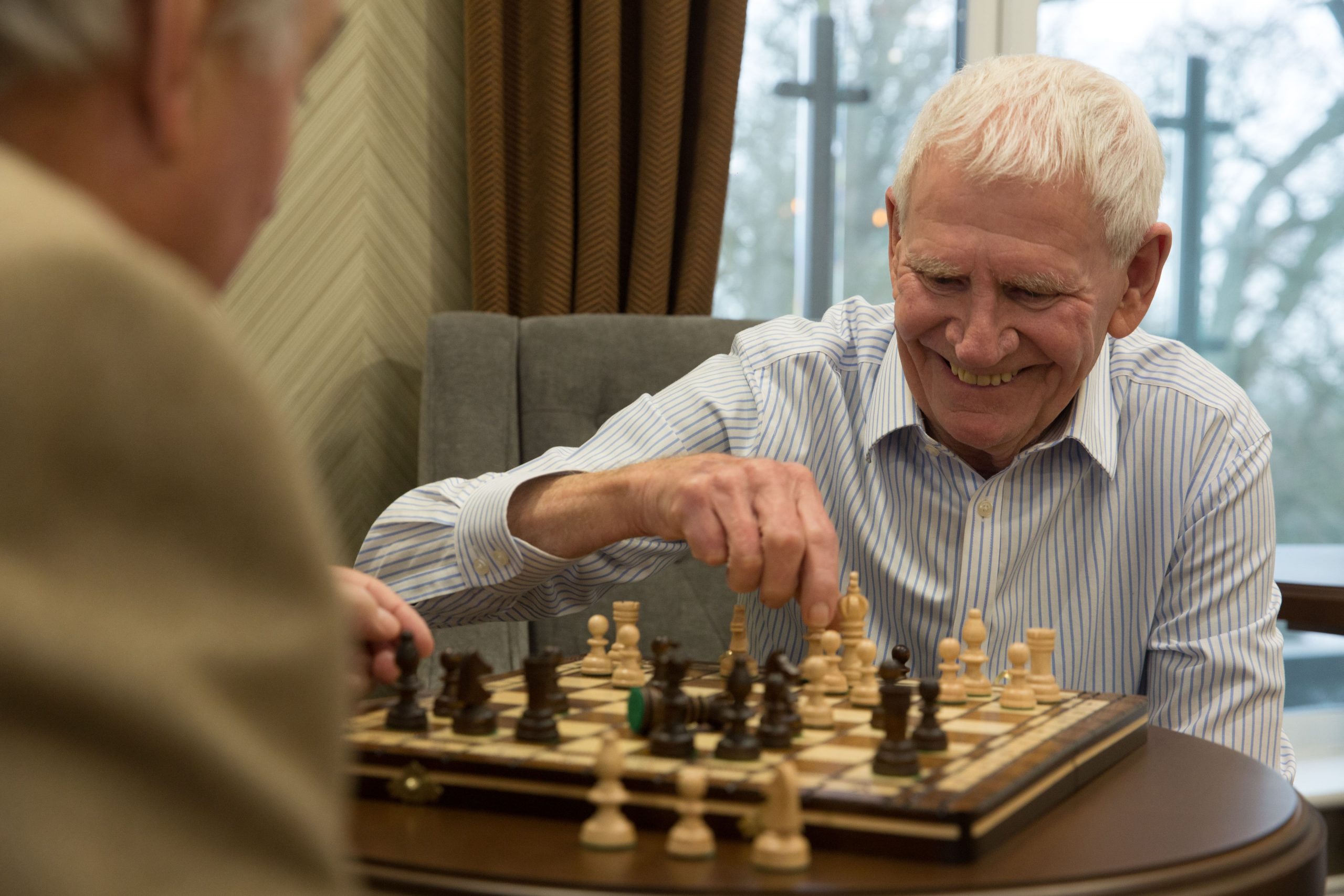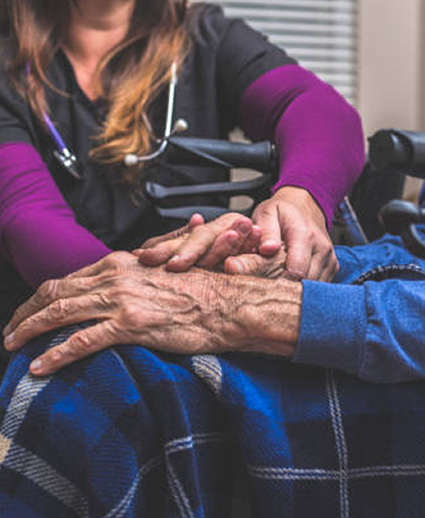Dementia care
At TLC Care we focus on building personal relationships that enable independence and creativity. Our holistic approach includes specifically designed facilities, tailored wellbeing programmes, life story work and engagement with specialist dementia care organisations.
Our person-centred approach to caring for residents living with a dementia diagnosis, means we get to know them closely and create a family environment that is designed to stimulate cognitive abilities. Our homes use colour, design and objects to evoke cherished memories of familiar surroundings in our retrospective rooms and other sensory areas.
Our dedicated wellbeing teams create tailored programmes filled with daily stimulating activities that are designed to embrace our residents’ individual passions and interests. This way with specialist support we create a healthy lifestyle for each person with dementia living in our welcoming care homes.
Using the latest research, we adopt relevant learning advancements and techniques so that all our residents receive exceptional dementia care in a safe and compassionate environment.

What does dementia care mean in our TLC Care homes?
At TLC Care, dementia support means providing the highest quality of care to people living with the dementia diagnosis, in a home that feels like their own. At our care homes we strive to give our residents the independence to complete everyday tasks, all while receiving highly personalised care in our safe home environment. This way residents, whether they are in the later or still in the early stages of dementia, get the chance to be their own person, which helps build up their self-esteems and confidence.
The dementia care we provide is highly tailored, as we understand that not everyone experiences the same dementia symptoms. To give both you and your loved one a peace of mind, we discuss the care options in great detail, to ensure no one has any questions left unanswered. With 24/7 support and customised dementia care, our TLC Care homes provide a safe, friendly and compassionate atmosphere for all our residents.
Alongside the comprehensive care we offer, our residents are always encouraged to stay active and enjoy various luxury amenities, wellbeing facilities, as well as partake in activities and events, which help create a feeling of overall wellness in our residents. On top of that, regular dementia-specific events are organised throughout all of the TLC Care homes, to give our residents the chance to share their stories, relate to others and see that they are not alone living with this diagnosis.
Every year our care homes are inspected by CQC (Care Quality Commission) and TLC Care prides itself with the high scores achieved year after year. We work to continuously improve the live of our residents in more efficient ways and make the stay at our homes fun and pleasant.








